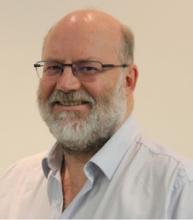Regardless of industry, programming language, or company size, change is a necessity in technology. We can’t effectively anticipate all future evolutions, but we can learn from past experiences to inform how to make our systems easier to change without over-engineering. The ability to safely and effectively deploy change at scale can be the difference in beating competitors to market, mitigating zero-day vulnerabilities, keeping developers happy, and ensuring customers have a reliable product.
Change is present every day in how we evolve our systems and release features. It is there when we decide to adopt a new technology or migrate systems from one solution to another. It’s also there when we need to rapidly address large-scale vulnerabilities at scale like we saw last year with log4j.
In this track, attendees will learn patterns and practices to help them architect systems and tooling with agility top of mind – enabling technology to keep up with the needs of the business while minimizing risk and technical debt
From this track
Adopting Continuous Deployment at Lyft
Monday Oct 24 / 10:35AM PDT
All organizations, regardless of size, need to be able to make rapid changes and improvements in their constantly growing systems. How can we handle all this change while maintaining a reliable product?

Tom Wanielista
Senior Staff Software Engineer @Lyft
Enabling Change @ Scale Roundtable
Monday Oct 24 / 11:50AM PDT
Increasing the safe delivery of change has immense business value across a number of dimensions, so how can we improve our ability to manage change at scale?

Tom Wanielista
Senior Staff Software Engineer @Lyft

Mykyta Protsenko
Senior Software Engineer @Netflix

Tapabrata Pal
Vice President of Architecture @Fidelity

Javier Fernandez-Ivern
Staff Software Engineer @Netflix with over 20 years in Software Engineering
Unconference: Architecting for Change
Monday Oct 24 / 01:40PM PDT
What is an unconference? At QCon SF, we’ll have unconferences in most of our tracks.

Shane Hastie
Global Delivery Lead for SoftEd and Lead Editor for Culture & Methods at InfoQ.com
Dark Side of DevOps
Monday Oct 24 / 02:55PM PDT
Topics like “you build it, you run it” and “shifting testing/security/data governance left” are popular: moving things to the earlier stages of software development, empowering engineers, shifting control definitely sounds good.

Mykyta Protsenko
Senior Software Engineer @Netflix
Stress Free Change Validation at Netflix
Monday Oct 24 / 04:10PM PDT
How do you gain confidence that a system modification does what it’s supposed to do? A refactoring should not cause a functional change, whereas a feature modification should cause a specific kind of change.

Javier Fernandez-Ivern
Staff Software Engineer @Netflix with over 20 years in Software Engineering
Log4Shell Response Patterns & Learnings From Them
Monday Oct 24 / 05:25PM PDT
In early December 2021, rumors about a remote code execution (RCE) vulnerability in Log4j began circulating on social media, dubbed Log4Shell. Over the next three days, those rumors were confirmed and the immense scope of the vulnerability became clear.

Tapabrata Pal
Vice President of Architecture @Fidelity



